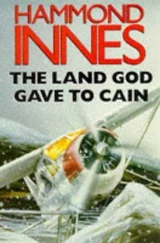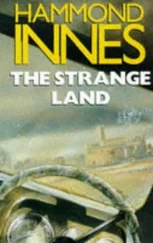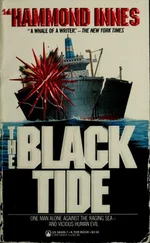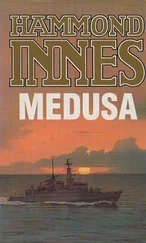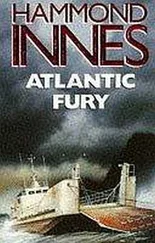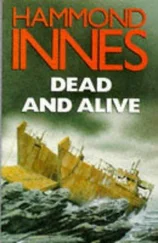Hammond Innes - The Doomed Oasis
Здесь есть возможность читать онлайн «Hammond Innes - The Doomed Oasis» весь текст электронной книги совершенно бесплатно (целиком полную версию без сокращений). В некоторых случаях можно слушать аудио, скачать через торрент в формате fb2 и присутствует краткое содержание. Жанр: Прочие приключения, на английском языке. Описание произведения, (предисловие) а так же отзывы посетителей доступны на портале библиотеки ЛибКат.
- Название:The Doomed Oasis
- Автор:
- Жанр:
- Год:неизвестен
- ISBN:нет данных
- Рейтинг книги:5 / 5. Голосов: 2
-
Избранное:Добавить в избранное
- Отзывы:
-
Ваша оценка:
- 100
- 1
- 2
- 3
- 4
- 5
The Doomed Oasis: краткое содержание, описание и аннотация
Предлагаем к чтению аннотацию, описание, краткое содержание или предисловие (зависит от того, что написал сам автор книги «The Doomed Oasis»). Если вы не нашли необходимую информацию о книге — напишите в комментариях, мы постараемся отыскать её.
The Doomed Oasis — читать онлайн бесплатно полную книгу (весь текст) целиком
Ниже представлен текст книги, разбитый по страницам. Система сохранения места последней прочитанной страницы, позволяет с удобством читать онлайн бесплатно книгу «The Doomed Oasis», без необходимости каждый раз заново искать на чём Вы остановились. Поставьте закладку, и сможете в любой момент перейти на страницу, на которой закончили чтение.
Интервал:
Закладка:
The ship stopped at Nasira Island with stores for the RAF and then on again, rounding Ras al Hadd at night and ploughing north-west into the Gulf of Oman.
On the afternoon of the seventh day out from Aden she anchored at Muscat, in a cove so narrow and rocky that David could scarcely believe his eyes; it might have been the Pembrokeshire coast of Wales except that it was a white, sun-drenched Arab town that stood close by the water’s edge at the head of the inlet. On the other side the rocks bore the name of visiting ships with dates going back to the 1800s, all painted in foot-high letters. Long, double-ended boats of palm wood, their broad planks sewn together with thongs, swarmed round the ship, paddled by Arabs whose faces shone black in the sun.
They were there twenty-four hours and in the night David thought more than once of diving over the side. The shore was so near. But once ashore, what hope had he? There was nowhere for him to go. In a halting conversation with one of the crew, a coast Arab from a fishing village to the north called Khor al Fakhan, he learned that Muscat was backed by volcanic mountains of indescribable brutality. They were almost fifty miles deep with every route through guarded by watch towers; and beyond the mountains was the desert of the Rub al Khali — the Empty Quarter. He knew it was hopeless, and so he stayed on board, and the next afternoon they sailed.
He was having his evening meal when he was told to report to the bridge. Captain Griffiths was there, seated on his wooden stool, staring out over the bows to the starlit sea ahead. The only other man on the bridge was the Arab helmsman standing immobile, his eyes fixed on the lit compass card in its binnacles, only his hands moving as he made small adjustments to the wheel. ‘Ah, there you are.’ Griffiths had turned his head. ‘When I went ashore at Muscat last night there was a slave from Saraifa waiting for me with a message from your father. You’ll doubtless be relieved to know that he’s willing to take you off my hands.’
And as David mumbled his thanks, the lips smiled behind the beard. ‘I may say I’m just as relieved as you are.’ And he added brusquely, ‘There’s an Arab sambuq waiting now off Ras al-Khaima to pick you up. Tonight we shall pass through the Straits of Hormuz into the Persian Gulf. With luck we should sight the sambuq about an hour after dawn. Now, you speak Arabic I’m told.’
‘A little,’ David admitted. ‘But it’s not easy to make myself understood — it’s the different dialects, I think.’
‘Well, do you think you can pass yourself off as an Arab?’ And without waiting for a reply, Griffiths added, ‘It’s the passengers, you see. They’ll talk if they see a white member of my crew being put aboard a dhow.’ A few words of briefing and then the Captain’s hand gripped his arm. ‘Good luck now, man. And a word of advice before you go — tread warily. It’s no ordinary man you’ve got for a father, indeed it isn’t. He’s the devil of a temper when he’s roused. So go easy and watch your step.’ And with that he dismissed him and turned again in his seat to stare through the glass at the lights of a ship coming up over the dark horizon.
David left the bridge, dazed and almost reluctant, for now the future was upon him — unknown, a little frightening. At dawn he would leave the ship and the companionship of the men he’d lived with for the past few weeks, and that last link with the home he’d known all his life would steam away, leaving him alone in a strange country, amongst strange people. It surprised him that he felt no excitement, no exhilaration — only loneliness and a sense of desolation. He didn’t know it then, but it was in this moment that he said goodbye to his boyhood.
The Mate found him sitting on his bunk, staring vacantly into space. ‘Here you are, Whitaker.’ And he tossed a bundle of clothing down beside him. ‘Ali Mahommed sold them to me — kaffyah, agal, robe, sandals, the lot, even to an old brass khanjar knife. Three pounds ten, and I’ve deducted it from your pay.’ He placed some East African notes and some silver on top of the clothes. The Old Man told you what to do, did he? Okay, so long as you greet the naukhuda with a salaam alaikum and a few more words of Arabic. And get along to the paintshop and put some stain on your face and hands. Your face is about as pink as a white baby’s bottom.’
Dressing up as an Arab for the first time in his life helped to pass the time, but still the long hours of the night stretched ahead. He lay awake a long time thinking about what the morrow would bring and about the man he hadn’t known was his father till that tragic day. And then suddenly it was light and almost immediately, it seemed, one of the Arab crew came down to tell him the sambuq had been sighted. He listened then, waiting, tense and expectant. And then the pulse of the engines slowed and finally died away. This was it — the moment of irrevocable departure. His hand touched the brass hilt of the great curved, flat-bladed knife at his girdle. He checked the kaffyah, made certain that the black agal was in its place, circling his head. He went quickly up to the after well-deck and waited in the shelter of the main deck ladder. The rope ladder was over the side opposite No. 3 hatch, one of the crew waiting there to help him over. The faint chug of a diesel sounded in the still morning air, coming slowly nearer. He heard the bump of the dhow as it came alongside, the guttural cry of Arab voices, and then the man by the ladder was beckoning him.
He went out quickly with his head down, hidden by his kaffyah. A dark-skinned hand caught his arm, steadied him as he went over the bulwarks. Glancing quickly up, he caught a glimpse of the Captain leaning with his elbows on the rail of the bridge wing and below, on the boat deck, a short, tubby man in a pale dressing-gown standing watching. And after that he could see nothing but the ship’s rusty side.
Hands reached up, caught him as he jumped to the worn wood deck of the dhow. He called out a greeting in Arabic as he had been told and at the same moment he heard the distant clang of the engine-room telegraph. The beat of the Emerald Isle’s engines increased and the hull plates began to slide past, a gap opening between himself and the ship. He turned away to hide his face and found himself on a long-prowed craft built of battered wood, worn smooth by the years and bleached almost white by the torrid heat of the Persian Gulf. A single patched sail curved above it like the dirty wing of a goose hanging dead in the airless morning. The sea around was still as a mirror and white like molten glass, and then the swirl of the ship’s screws shattered it.
There were three men on the sambuq and only the naukhuda, or captain, wore a turban as well as a loin cloth. He was an old man with a wisp of grey moustache and a few grey hairs on his chin which he stroked constantly. The crew was composed of a smooth-faced boy with a withered arm and a big, barrel-chested man, black as a negro, with a satin skin that rippled with every movement. The naukhuda took his hand in his and held it for a long time, whilst the other two crowded close, staring at his face, feeling his clothes — six brown eyes gazing at him full of curiosity. A flood of questions, the old man using the deferential sahib, legacy of India. Whenever he said anything, all three listened respectfully. But it was no good. He couldn’t seem to make himself understood.
At length he gave it up and judging that it would be safe now to turn his head to take a last look at the Emerald Isle, he was appalled to find that she had vanished utterly, swallowed in the humid haze of the day’s beginning. For a time he could still hear the beat of her engines, but finally even that was gone and he was alone with his three Arabs in a flat calm sea that had an oily shimmer to its hard, unbroken surface.
Читать дальшеИнтервал:
Закладка:
Похожие книги на «The Doomed Oasis»
Представляем Вашему вниманию похожие книги на «The Doomed Oasis» списком для выбора. Мы отобрали схожую по названию и смыслу литературу в надежде предоставить читателям больше вариантов отыскать новые, интересные, ещё непрочитанные произведения.
Обсуждение, отзывы о книге «The Doomed Oasis» и просто собственные мнения читателей. Оставьте ваши комментарии, напишите, что Вы думаете о произведении, его смысле или главных героях. Укажите что конкретно понравилось, а что нет, и почему Вы так считаете.

